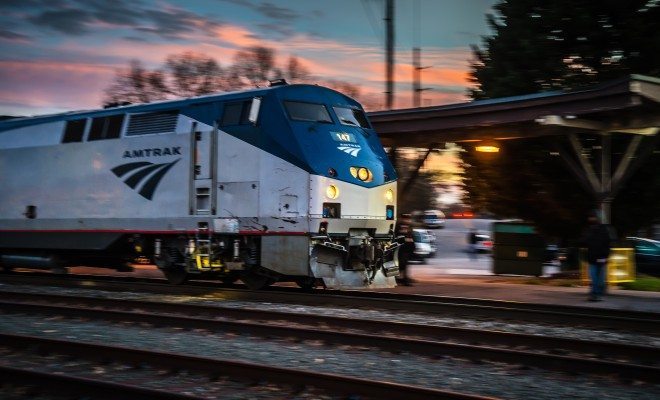 Image courtesy of [Bill Dickinson via Flickr]
Image courtesy of [Bill Dickinson via Flickr]
News
Will This Law Prevent Amtrak Derailment Victims from Receiving Money?
The horrific derailment of an Amtrak train traveling from Washington DC to New York last week left eight people dead, over 200 hurt, and much of the country worried about the overall safety of these passenger trains. Amtrak Train 188 was reportedly going more than twice the speed limit–106 mph–when it hit a curved stretch of track in Philadelphia and derailed. Investigators have yet to determine what caused this massive train crash, and are estimating it will be upwards of a year before they have any definitive answers. Despite this, a slew of plaintiffs have already begun serving the National Railroad Passenger Corporation (Amtrak) with lawsuits.
Four passengers sue #Amtrak over deadly Philadelphia derailment: http://t.co/BfgH7zo95H pic.twitter.com/l8eskOgZMd
— Reuters Top News (@Reuters) May 18, 2015
At least six passengers so far have already filed suit, alleging negligence on behalf of Amtrak for failing to use safety measures like automatic train control, which is a train protection system used to regulate speed. The lead conductor, Emilio Fonseca, on the train has also filed suit against his own company after he suffered major injuries from the crash. The son of City University of New York Medgar Evers College Dean Derrick Griffith, is also expected to file suit shortly and will most likely be joined by other family members of the deceased victims.
Even though the exact number of lawsuits Amtrak will face cannot yet be determined, the maximum payout for the victims already has been. According to Slate, the payout cap for a single passenger rail incident was set at $200 million by a federal law in 1997 aimed at rescuing Amtrak from financial ruin. Slate writes,
At the time the 1997 law was passed, the federally subsidized company was facing bankruptcy and needed bailout funds. The reluctant lawmakers ponied up the dough needed to keep the wheels turning, but they inserted the liability-limitation provision into the Amtrak Reform and Accountability Act. The effect was to shift fiscal responsibility from the taxpayers as a whole to the injured parties by reducing the monetary sum they’d otherwise be eligible to recover in damages through the tort system. And the amount has never been increased to reflect inflation.
According to the Associated Press, in 2010 some California lawmakers actually moved to increase the cap to $500 million, but the rail industry successfully lobbied against the measure. Because of this cap many people who were injured in the wreck, or had a family member perish, may not be adequately compensated for their pain and suffering. That’s disturbing when 20 victims still remain in critical condition in hospitals fighting for their lives. It’s not yet clear if anything will be done to raise this payout cap before these lawsuits make their way to court, but so far Amtrak looks to be 100 percent on the hook for these damages.








Comments